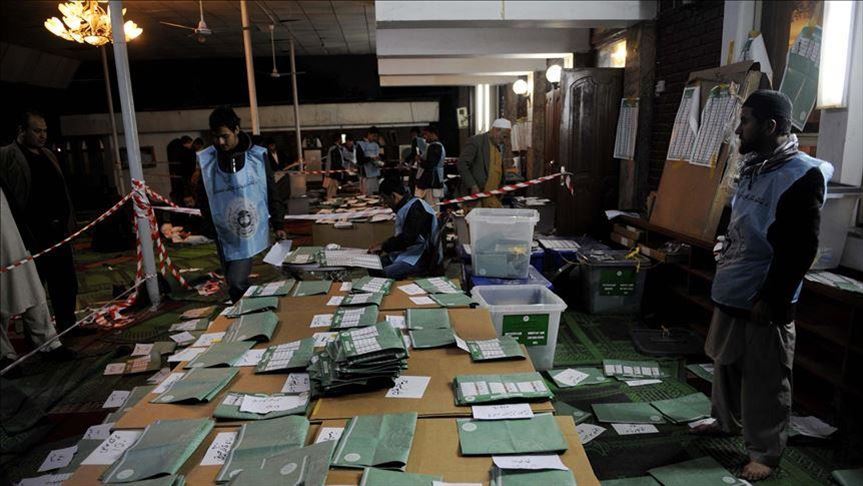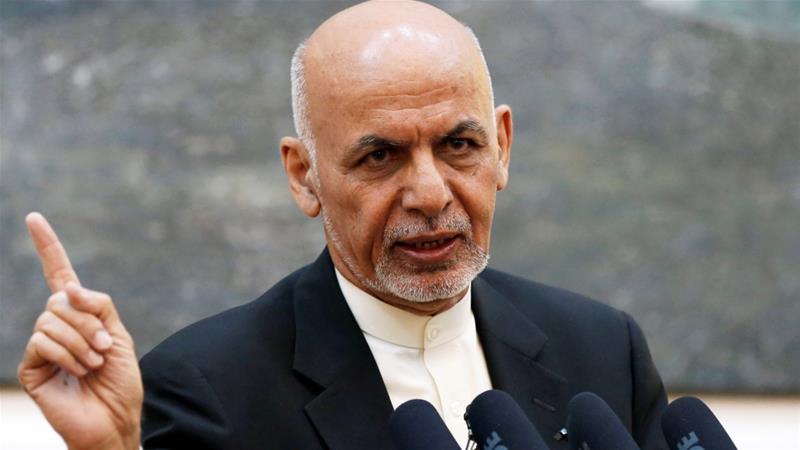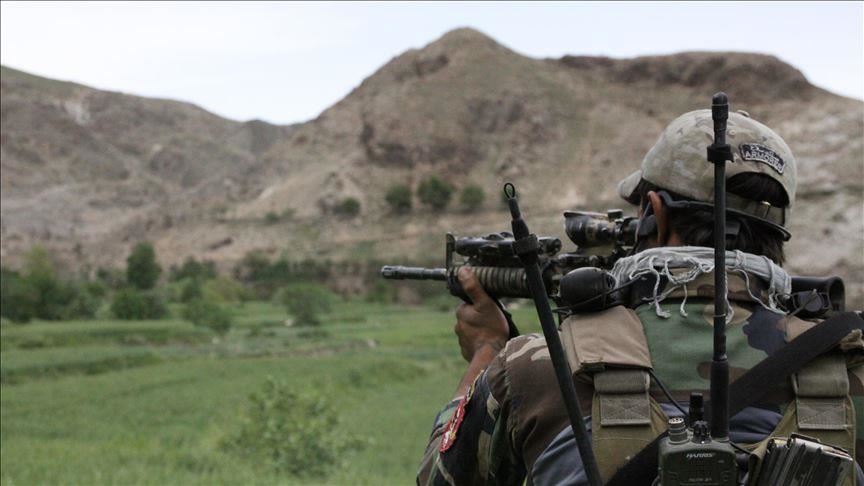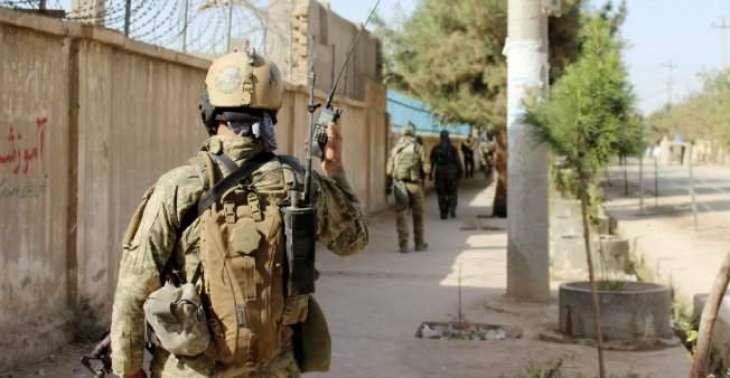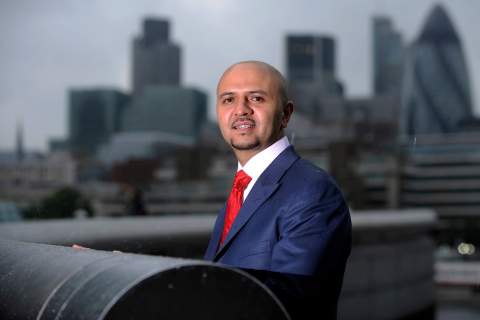An election crisis is simmering in Afghanistan as preliminary results have not been announced even a month after the landmark polls and as the insurgency rages on.
Publish dateSunday 27 October 2019 - 00:26
Story Code : 194038
Delayed vote results sow simmering crisis
With vote results now a week late, fear over repeat of 2014 crisis spreading, and election officials try to reassure
As the country's Independent Election Commission carefully reassures political camps, eager voters, and foreign donors while continuing to count and sort out the Sept. 28 polls, the delay in announcing the results is spreading fear of a repeat of the crisis Afghanistan saw in the previous presidential vote in 2014.
Raheema Zarifi, an election commissioner, told media that over 1.9 million biometric votes have been logged into the central data server, and now the commission is striving to compile preliminary results.
“All legitimate and void votes will be separated in the central server in the coming days before we come up with preliminary results,” she said.
The landmark presidential polls, only the fourth since the fall of the Taliban in late 2001, concluded on Sept. 28 with some incidents of election-related violence, including at least 13 people killed and over 40 wounded.
More than 8 million people were registered as potential voters.
Vowing to press ahead with its armed insurgency in the wake of failed peace talks with the U.S., ahead of the elections the Taliban warned potential voters to stay indoors and "not put themselves in danger" by coming out to vote.
The top election body was supposed to announce preliminary results on Oct. 19, with final results slated for on Nov. 7.
But a week after Oct. 19, with no immediate signs of the results, election observers are increasingly seeking assurances of transparency while the international community says there is no need for panic or uncertainty.
Last week, the country's Western backers applauded the courage of Afghan voters, poll workers, election observers, and security forces, as well as the work of the election officials, for making the Sept. 28 presidential elections possible, respecting Afghanistan’s constitutional order.
Meeting in Brussels on Oct. 22, representatives of the EU, France, Germany, Italy, Norway, the U.K., UN, and U.S. urged independent Afghan electoral institutions to ensure all the votes are accurately counted and that results are determined in a fair and transparent manner to ensure the credibility and legitimacy of the electoral process.
Calls for fair, timely process
Among the race’s front-runners are incumbent President Mohammad Ashraf Ghani with his State Builder team, and his power-sharing Chief Executive Abdullah Abdullah with his Stability and Partnership team.
The vote-counting process should not be done hastily, Yonus Nauandesh, former mayor of the capital Kabul and observer for the Stability and Partnership team, told media.
“Each and every clean and rigged vote should be separated,” he stressed.
Dawood Sultanzoy, the State Builders’ observer, said the election commission should share with the public the final clean results without undue delay after a transparent counting and sorting process.
Earlier this week the commission apologized to the public over the delay in announcing preliminary results.
With bitter memories of the 2014 polls in mind -- when the country was on the edge of disorder amid the withdrawal of some 100,000 foreign troops and hastily done polls delivered a weak and divided National Unity Government -- analysts fear Afghanistan cannot afford another episode of dramatic uncertainty.
Nizam Katawazi, a Kabul-based political analyst formerly of the Academy of Sciences of Afghanistan, said politicians need to demonstrate maturity.
“Doubtlessly the elections were much better organized than previous ones, but there were shortcomings that, however, should not be used by the politicians as excuse to clinch power, undermining the people's vote,” he said.
The vote-counting delay comes as Afghanistan is witnessing intense clashes between government forces and Taliban insurgents.
The latest surge in violence also comes amid renewed efforts by China, Russia, and the EU to revive the stalled peace talks.
China is hosting Taliban and Afghan delegates in a two-day meeting slated to begin on Monday in Beijing. Also, diplomats from the U.S., Russia, China, and Pakistan met in Moscow on Friday to discuss the Afghan peace process.
Raheema Zarifi, an election commissioner, told media that over 1.9 million biometric votes have been logged into the central data server, and now the commission is striving to compile preliminary results.
“All legitimate and void votes will be separated in the central server in the coming days before we come up with preliminary results,” she said.
The landmark presidential polls, only the fourth since the fall of the Taliban in late 2001, concluded on Sept. 28 with some incidents of election-related violence, including at least 13 people killed and over 40 wounded.
More than 8 million people were registered as potential voters.
Vowing to press ahead with its armed insurgency in the wake of failed peace talks with the U.S., ahead of the elections the Taliban warned potential voters to stay indoors and "not put themselves in danger" by coming out to vote.
The top election body was supposed to announce preliminary results on Oct. 19, with final results slated for on Nov. 7.
But a week after Oct. 19, with no immediate signs of the results, election observers are increasingly seeking assurances of transparency while the international community says there is no need for panic or uncertainty.
Last week, the country's Western backers applauded the courage of Afghan voters, poll workers, election observers, and security forces, as well as the work of the election officials, for making the Sept. 28 presidential elections possible, respecting Afghanistan’s constitutional order.
Meeting in Brussels on Oct. 22, representatives of the EU, France, Germany, Italy, Norway, the U.K., UN, and U.S. urged independent Afghan electoral institutions to ensure all the votes are accurately counted and that results are determined in a fair and transparent manner to ensure the credibility and legitimacy of the electoral process.
Calls for fair, timely process
Among the race’s front-runners are incumbent President Mohammad Ashraf Ghani with his State Builder team, and his power-sharing Chief Executive Abdullah Abdullah with his Stability and Partnership team.
The vote-counting process should not be done hastily, Yonus Nauandesh, former mayor of the capital Kabul and observer for the Stability and Partnership team, told media.
“Each and every clean and rigged vote should be separated,” he stressed.
Dawood Sultanzoy, the State Builders’ observer, said the election commission should share with the public the final clean results without undue delay after a transparent counting and sorting process.
Earlier this week the commission apologized to the public over the delay in announcing preliminary results.
With bitter memories of the 2014 polls in mind -- when the country was on the edge of disorder amid the withdrawal of some 100,000 foreign troops and hastily done polls delivered a weak and divided National Unity Government -- analysts fear Afghanistan cannot afford another episode of dramatic uncertainty.
Nizam Katawazi, a Kabul-based political analyst formerly of the Academy of Sciences of Afghanistan, said politicians need to demonstrate maturity.
“Doubtlessly the elections were much better organized than previous ones, but there were shortcomings that, however, should not be used by the politicians as excuse to clinch power, undermining the people's vote,” he said.
The vote-counting delay comes as Afghanistan is witnessing intense clashes between government forces and Taliban insurgents.
The latest surge in violence also comes amid renewed efforts by China, Russia, and the EU to revive the stalled peace talks.
China is hosting Taliban and Afghan delegates in a two-day meeting slated to begin on Monday in Beijing. Also, diplomats from the U.S., Russia, China, and Pakistan met in Moscow on Friday to discuss the Afghan peace process.
avapress.net/vdcexe8zvjh8o7i.1kbj.html
Tags
Top hits
